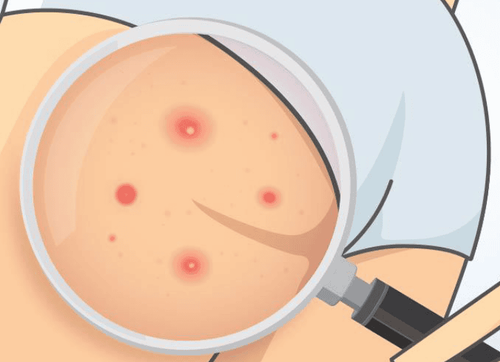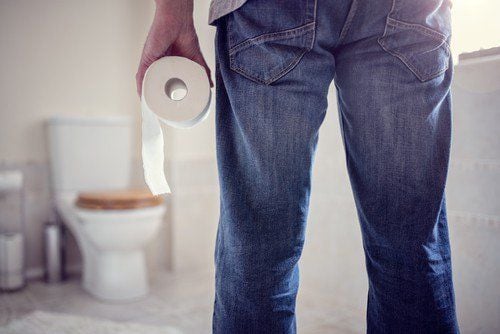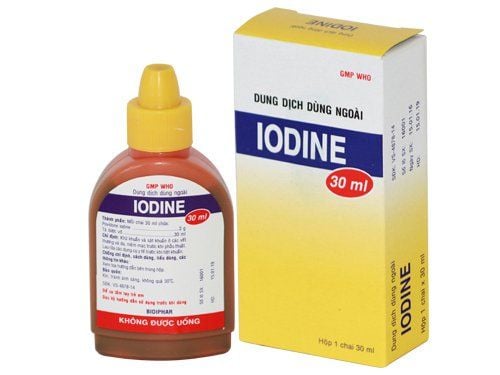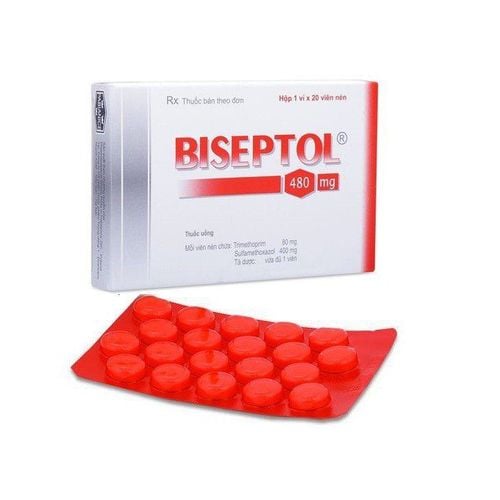By Master, Doctor Mai Vien Phuong - Department of Examination & Internal Medicine - Vinmec Central Park International General Hospital
Is this a typical problem? Diarrhea that occurs after you eat a meal is called postprandial diarrhea. This type of diarrhea is often unexpected, and the feeling of having to go to the bathroom can be quite urgent.
Some people with postprandial diarrhea experience pain during bowel movements. In most cases, this pain goes away after a bowel movement. This condition is not uncommon, but it can be difficult to diagnose. That's because postprandial diarrhea is sometimes a symptom of another condition.
For example, some people only have diarrhea with irritable bowel syndrome. This is called IBS-diarrhea or IBS-D. Diarrhea after eating can be a symptom of IBS-D.
In other cases, diarrhea after eating occurs without a diagnosable cause.
The conditions or problems that can cause diarrhea after eating fall into two main categories: Acute, which lasts for a short time, and chronic, which lasts for a long time.
1. What causes acute diarrhea after eating?
A number of conditions or problems can cause a short episode of diarrhea after eating. Time may stop the symptoms of diarrhea after eating, or medication may be required. These causes include:
Viral infections: Viral infections, such as stomach bugs, can cause temporary diarrhea after eating and make your digestive tract more sensitive. Diarrhea after eating can last for several days, even if other symptoms have improved.
Lactose intolerance: People who are allergic to lactose, a sugar found in dairy products, may experience diarrhea after eating if they eat foods containing lactose. Symptoms of lactose intolerance include bloating, abdominal cramps, and diarrhea.
Food poisoning: The human body is good at recognizing when it has eaten something it shouldn't. When it detects that the food is bad, your body will probably try to get rid of it immediately. This can cause diarrhea or vomiting within minutes of eating contaminated food.
Sugar absorption: This condition is very similar to lactose intolerance. Some people's bodies cannot properly absorb sugars like lactose and fructose. When these sugars enter the intestines, they can cause diarrhea and other digestive problems.
Toddler diarrhea: Toddlers and young children who drink a lot of fruit juice can develop diarrhea after eating. The high sugar content in these drinks can draw water into the intestines, causing watery stools and diarrhea.
Parasites: Parasites in food can cause diarrhea after eating. The most common type of foodborne parasite is the tapeworm. Symptoms, including diarrhea after eating, will last until the parasite is eliminated from your body or you die.
Magnesium overdose: High amounts of magnesium can cause diarrhea. However, it is difficult to get too much of this mineral unless you are taking a supplement.
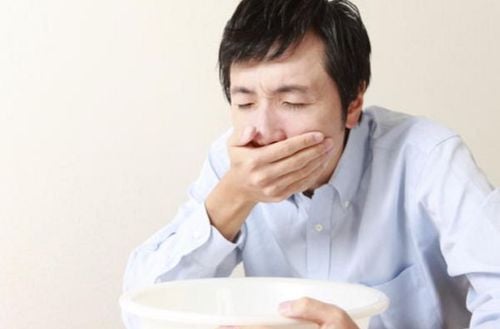
2. What Causes Chronic Diarrhea After Eating?
Chronic causes of diarrhea after eating are conditions that may require ongoing treatment to prevent symptoms of diarrhea after eating. These conditions include:
Irritable bowel syndrome: IBS is a disorder that causes a range of digestive problems. These include diarrhea, bloating, gas, and abdominal cramps. It is not clear what causes IBS.
Celiac disease: This autoimmune condition causes damage to your intestines every time you eat gluten. Gluten is a protein most commonly found in wheat products.
Microscopic colitis: This condition causes inflammation in your large intestine. In addition to diarrhea, symptoms include bloating and abdominal cramps. However, inflammation is not always present. That means symptoms of diarrhea after eating can come and go.
Bile Acid Absorption: The gallbladder produces bile to help break down and digest fats in your food. If these acids are not reabsorbed properly, they can irritate your large intestine. This can lead to watery stools and diarrhea.
Gallbladder removal: People who have had their gallbladders removed may experience frequent diarrhea in the first few weeks and months after surgery. In most cases, the diarrhea will eventually stop, but some people will continue to have chronic diarrhea or diarrhea after surgery.
Dumping syndrome: This complication of weight-loss surgery is uncommon, but it can be a cause of diarrhea after eating. With this condition, your stomach empties very quickly after eating. This triggers the reflex that controls bowel movements, so diarrhea may be more common.
If your doctor diagnoses you with IBS-D or diarrhea after eating, ask if another condition is likely causing your symptoms. In some cases, a diagnosis of IBS-D may prevent some doctors from considering other conditions.
3. How to find relief?
Many conditions that cause diarrhea after eating require medical treatment, but these four lifestyle treatments may also help:
Avoid trigger foods: Certain foods can contribute to diarrhea after eating. If you're not sure what your trigger foods are, keep a food diary. Record what you eat and when you experience diarrhea after eating. Look for foods commonly associated with diarrhea after eating, such as fatty foods, high-fiber foods, and dairy.
Practice food safety: Prevent bad bacteria by washing fruits and vegetables before eating, cooking meat to the proper temperature, and properly refrigerating foods that need to be refrigerated.
Eat small meals: Eat five to six small meals a day instead of three large meals. This can help your intestines digest food more easily and may reduce symptoms of diarrhea after eating.
Reduce Stress: Your mind has a lot of power over your gut. When you’re stressed or anxious, you may be more prone to upset stomachs. Learning to manage stress and anxiety is not only good for your mental health, but also for your digestive health.
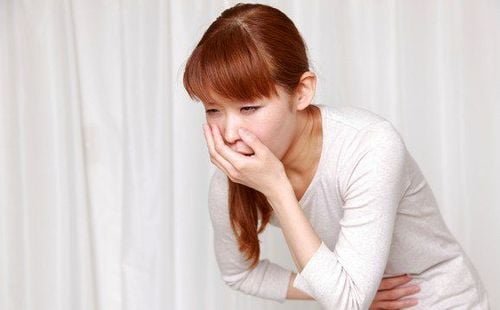
4. When to see a doctor
Diarrhea happens from time to time. It’s usually not a serious concern. However, serious complications can occur, so check with your doctor if you experience any of these additional symptoms:
Frequency: If diarrhea occurs more than once a week for more than three weeks, or if you have diarrhea for three days in a row, make an appointment with your doctor.
Fever: If you have diarrhea and a fever of more than 102°F (38.8°C), seek medical attention.
Pain: If you have diarrhea regularly but start to have severe abdominal pain or rectal pain during bowel movements, talk to your doctor.
Dehydration: It is important to stay hydrated when you have diarrhea. Drinking water or electrolyte-containing drinks can help you stay healthy despite diarrhea. However, if you start to show signs of dehydration, seek medical attention. Signs of dehydration include:
-Extreme thirst
-Confusion
-Muscle cramps
-Dark urine
Discolored stools: If you start to have black, gray, or bloody stools, talk to your doctor. This could be a sign of a more serious gastrointestinal problem.
There is no single tool or test that can help doctors identify and diagnose the source of postprandial diarrhea. Therefore, they often recommend several treatments at a time until they find one that works consistently.
When a treatment is effective, it will help your doctor understand what is causing your postprandial diarrhea. From there, they can continue to narrow down the potential causes and come up with a comprehensive treatment plan.
Vinmec International General Hospital is one of the hospitals that not only ensures professional quality with a team of doctors and modern equipment systems, but also stands out with comprehensive, professional examination, consultation and treatment services; a civilized, polite, safe and maximally sterile examination and treatment space.
The Department of Endoscopy - Gastroenterology is one of the key specialties at Vinmec International General Hospital. To be examined, consulted and treated promptly for digestive diseases, you can contact the Vinmec Healthcare System nationwide or make an appointment on the website to be served.

To arrange an appointment, please call HOTLINE or make your reservation directly HERE. You may also download the MyVinmec app to schedule appointments faster and manage your reservations more conveniently.
ReferencesMayo Clinic Staff. (2016). Celiac disease: Overview. mayoclinic.org/diseases-conditions/celiac-disease/home/ovc-20214625 Mayo Clinic Staff. (2016). Dehydration: Symptoms and causes. mayoclinic.org/diseases-conditions/dehydration/symptoms-causes/dxc-20261072 Mayo Clinic Staff. (2014). Irritable bowel syndrome: Causes. mayoclinic.org/diseases-conditions/irritable-bowel-syndrome/basics/causes/con-20024578 Mayo Clinic Staff. (2014). Irritable bowel syndrome: Definition. mayoclinic.org/diseases-conditions/irritable-bowel-syndrome/basics/definition/con-20024578 Mayo Clinic Staff. (2016). Microscopic colitis: Overview. mayoclinic.org/diseases-conditions/microscopic-colitis/home/ovc-20192308 Middleton SJ, et al. (2011). Post-prandial reactive hypoglycaemia and diarrhea caused by idiopathic gastric accelerated emptying: A case report. ncbi.nlm.nih.gov/pmc/articles/PMC3113993/





